Contract sheep farming is a form of livestock husbandry where farmers rear sheep on behalf of companies. The latter provides the former with inputs like feed, medication, and technical support. The farmer then sells the animals back to the company at a pre-determined price. Let’s find out more information about contract sheep farming in India below.
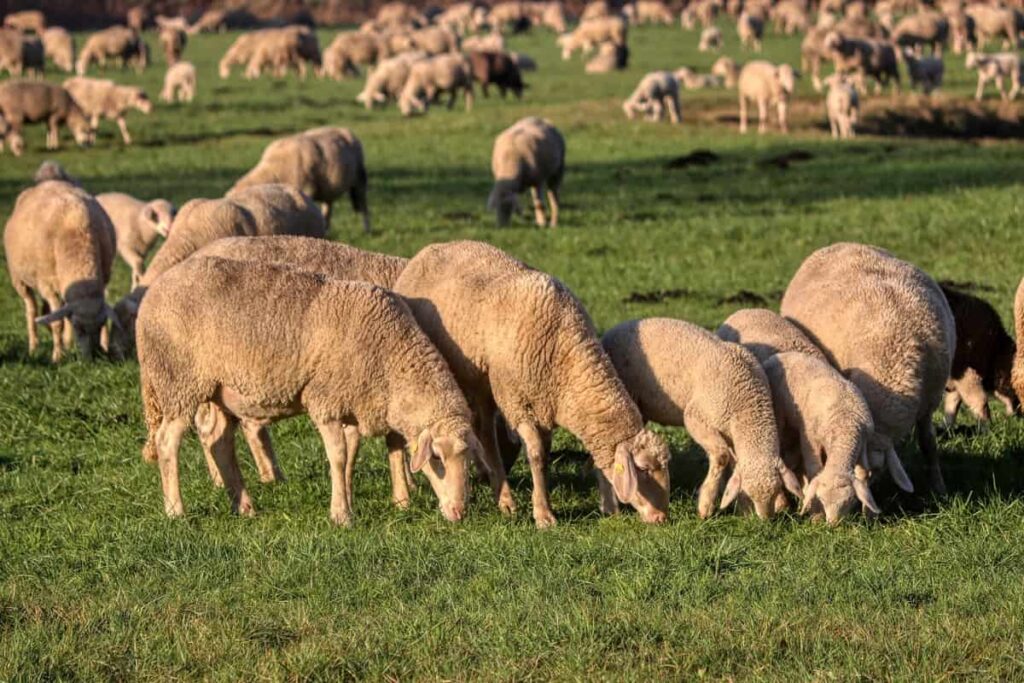
The concept of contract sheep farming was introduced in India in the early 2010s by wool and meat processing companies. They saw it as a way to ensure a regular supply of raw materials while providing an additional income source for farmers. Contract sheep farming has become increasingly popular in India over the past few years. There are several advantages that it offers farmers, such as:
- Access to quality inputs: Companies that engage in contract sheep farming provide their farmers with access to quality inputs like feed and medication. This ensures that the animals are healthy and productive.
- Technical support: Farmers also receive technical support from companies, which helps them to improve their husbandry practices.
- Regular income: Under contract Farming, farmers are guaranteed a fixed price for their animals regardless of market conditions. This gives them a sense of financial security and allows them to plan their finances better.
The disadvantage associated with contract sheep farming is ‘Limited freedom’. Farmers must abide by the rules, terms, and regulations of the companies they are contracted. This can limit their freedom to operate their farms.
Importance of sheep farming in India
In India, sheep farming is an integral part of the agricultural economy. Sheep are raised for their wool, meat, and milk. India is the second largest producer of wool in the world. Sheep farming also employs millions of people in rural areas. Sheep play an important role in the Indian economy.
They are a source of millions of people’s food, clothing, and income. Sheep meat is a popular delicacy in India. Wool is used to make clothes, carpets, and other products. Milk from sheep is used to make cheese and other dairy products. Sheep farming offers an opportunity to earn a good income. It requires little investment and can be done on a small scale. Sheep are easy to care for and provide a steady income.
In case you missed it: How to Make Sheep Manure Compost: A Step-by-Step Guide to Using in Your Garden
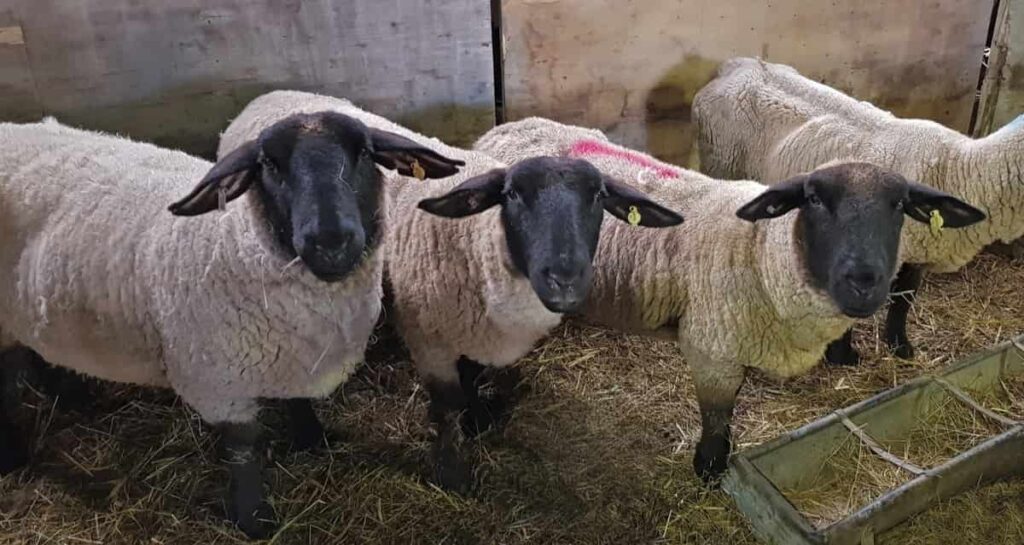
How does contract sheep farming work in India?
In India, contract sheep farming is a type of farming where the farmer raises sheep on behalf of a company. The company provides the sheep and pays the farmer to raise them. The farmer is responsible for feeding, watering, and caring for the sheep. The company may also provide other supplies, such as fencing and shelters.
Types of contract sheep farming in India
In India, there are two types of sheep contract farming: the first is where farmers sign a contract with a company to raise sheep for their wool production, and the second is where farmers sign a contract with a company to raise sheep for meat production. In the first type of contract farming, the farmer agrees to raise a certain number of sheep for the company.
In case you missed it: Common Sheep Diseases, Symptoms, and Treatment: Check How this Guide Helps Sheep Farmers
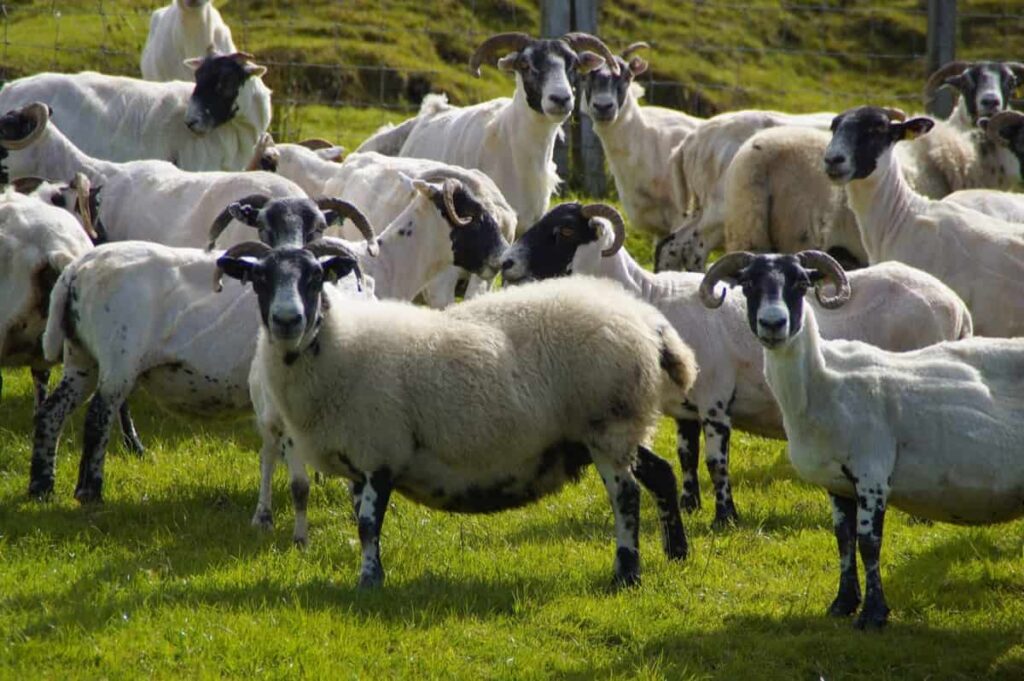
The company provides the farmer with everything they need to care for the sheep, including food and shelter. In return, the farmer agrees to sell the wool to the company at a set price. This type of contract farming is common in areas with many lands available for grazing. In the second type of contract farming, the farmer agrees to raise a certain number of sheep for the company.
The company provides the farmer with everything they need to care for the sheep, including food and shelter. In return, the farmer agrees to sell the meat to the company at a set price. This type of contract farming is common in areas where only a few lands are available for grazing.
Pros and cons of contract sheep farming in India
Contract sheep farming is a type of livestock production in which farmers raise sheep on behalf of a company or other organization. The organization contracts with the farmer to provide a certain number of sheep; in return, the farmer receives a fixed amount of money per animal.
Pros
- It can provide farmers with a steady income, as they are paid for each animal regardless of the price of wool or meat.
- It can help farmers diversify their incomes, as they are not solely reliant on selling their animals.
- It can reduce the risk associated with sheep farming, as the farmer does not have to invest in infrastructure or animals.
- The farmer can invest in something other than buying sheep or other supplies.
- The farmer can focus on raising sheep without worrying about marketing or selling lamb meat or wool.
- The farmer is guaranteed a specific price for lamb meat or wool, regardless of market conditions.
- The company may provide technical assistance and training to the farmer.
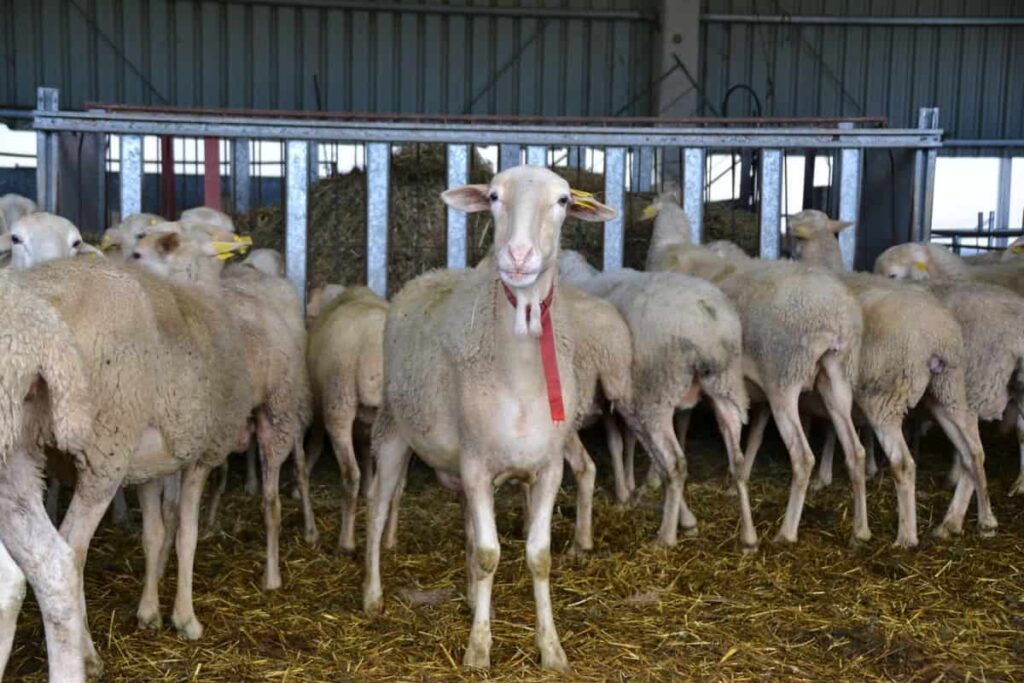
Con’s
- The farmer has less control over how the sheep are raised and may be required to use specific feed or follow specific husbandry practices.
- The farmer may be required to sell the lamb meat or wool to the company at a below-market price.
- The contract terms may be unfair to the farmer or change over time without notice.
- If the contracted flock dies, the farmer may not be compensated adequately by the company.
- The farmer may be required to use specific methods or breeds of sheep that may need to be better suited to their farm or climate.
- The farmer may be required to make significant investments in infrastructure and animals upfront before they receive any payment from the organization.
- There is always the risk that the organization will default on its payments, leaving the farmer out of pocket.
Different types of companies that offer contract sheep farming in India
A few different types of companies offer contract sheep farming in India. The most common is the private company, which contracts with farmers to provide sheep and other necessary supplies. These companies usually have a network of farmers that they work with, and they may also contract with other businesses to provide additional services, such as transportation or marketing.
Another company that offers contract sheep farming in India is a government-run organization. These organizations typically work with a group of farmers to provide them with resources and support. In some cases, the government may also provide financial assistance to help farmers start contracting sheep farming.
The last type of company that offers contract sheep farming in India is the NGO (non-governmental organization). NGOs typically work with local communities to help them establish and maintain sheep farms. They may also provide training and support to farmers, as well as financial assistance.
Contract sheep farming agreement in India
There are several contract sheep farming agreement options available in India. The most common type of agreement is the grazing lease, which allows farmers to graze their sheep on another farmer’s land. This type of agreement is typically for one to five years, and the farmer must pay a grazing fee to the landowner.
Other types of contract sheep farming agreements include wool production contracts, where farmers agree to sell their wool to a wool processor; lamb production contracts, where farmers agree to sell their lambs to a lamb buyer; and live sheep export contracts, where farmers agree to export live sheep to another country.
In case you missed it: How to Start Goat Farming in Philippines: Goat Breeds and Check How this Guide Helps Beginners
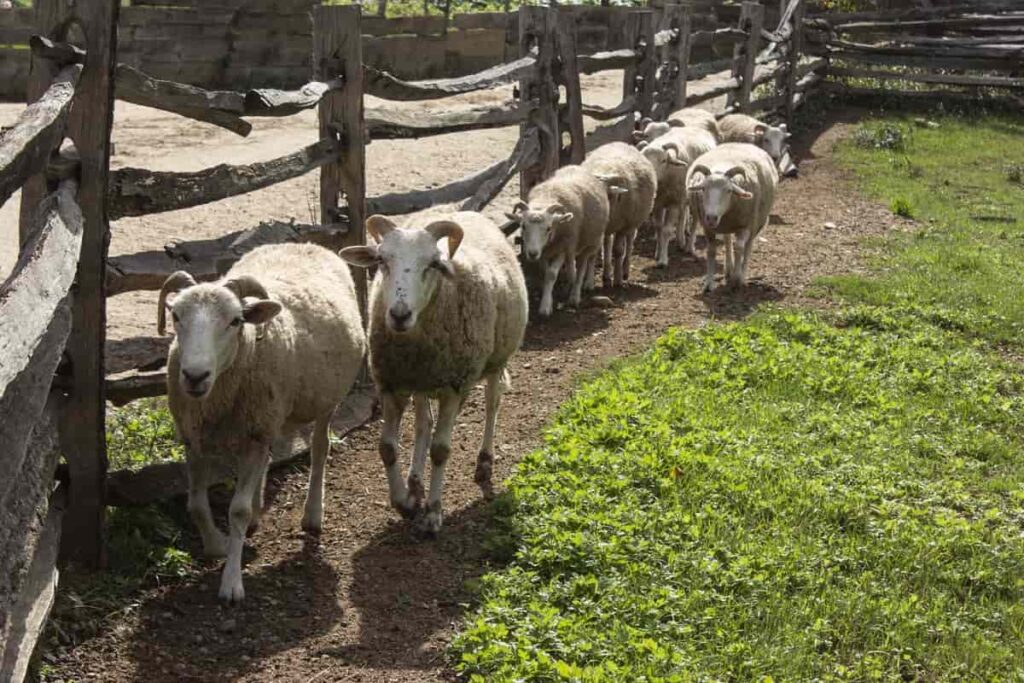
Each type of contract has different terms and conditions, so farmers must understand the contract sheep farming terms of the agreement before signing it. For example, grazing leases may require the farmer to maintain the land in good condition and keep the sheep off crops or other sensitive areas. Wool production contracts may specify the minimum amount of wool that must be produced and live export contracts may include requirements regarding the health and welfare of the sheep.
Profits in contract Sheep Farming
Contract sheep farming can be a very profitable business. When entering this type of business, there are many factors to consider, but if done correctly, it can be an excellent way to make money. The first and foremost thing to consider is the sheep’s cost. You will need to purchase sheep from a farmer or rancher, and the cost will vary depending on the type of sheep you want and the number you need.
You should also consider the sheep’s cost of food and housing. Once you have your sheep, you must find a market for them. You can sell the wool or the meat, or both. The prices for these products will vary depending on the time of year and the demand. You will also need to factor in your overhead costs, such as fuel and labor.
If you have employees in the sheep farming business, you will need to pay them a wage. These costs can add up quickly, so it is important to factor them into your budget. If done correctly, contract sheep farming can be a very profitable business. When entering this type of business, there are many factors to consider, but if done correctly, contract sheep farming can be a great way to make money.
In case you missed it: Tips to Start a Goat Farming Business: Check How this Guide Helps Beginners
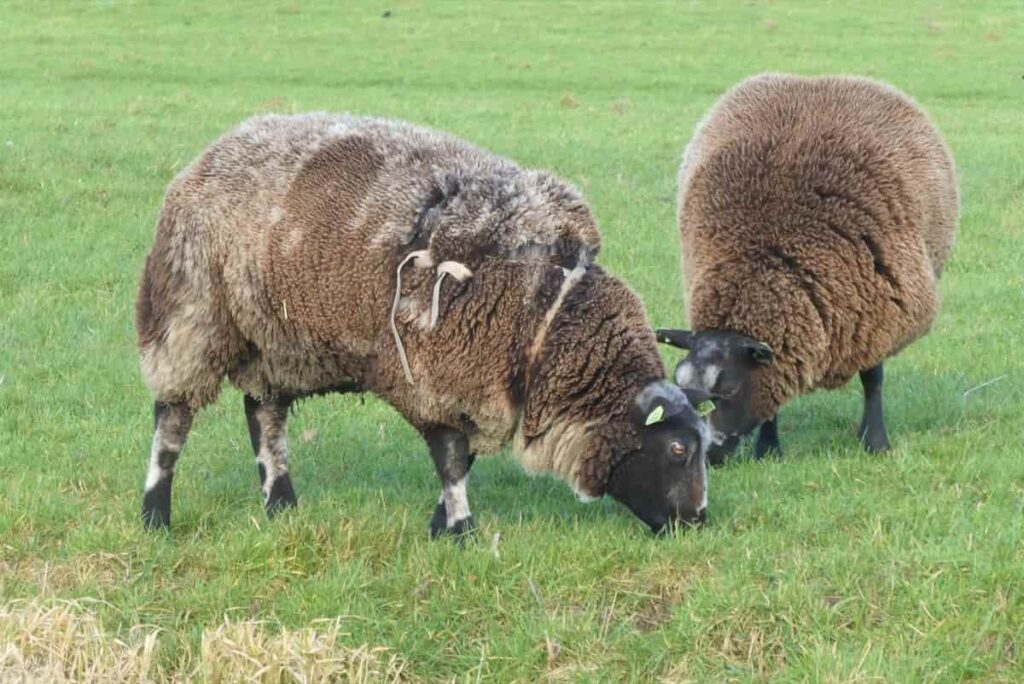
Conclusion
Contract sheep farming in India is an agricultural business model in which companies will contract with farmers to raise their sheep. The company provides the animals, feed, and other supplies, and the farmer must agree to care for the flock and meet specific production goals.
There are pros and cons of contract sheep farming, but it can be highly beneficial for many people with different reasons why they may want to start a contract farming business. If you live in the following states of India and plan to start a contract with sheep farming, this blog post may help you set up your sheep farm.
| Andhra Pradesh | Karnataka |
| Arunachal Pradesh | Kerala |
| Assam | Madhya Pradesh |
| Bihar | Maharashtra |
| Chhattisgarh | Manipur |
| Goa | Meghalaya |
| Gujarat | Mizoram |
| Central India | South India |
| Haryana | Sikkim |
| Himachal Pradesh | Tamil Nadu |
| Jharkhand | Telangana |
| Nagaland | Tripura |
| Odisha | Uttar Pradesh |
| Punjab | Uttarakhand |
| Rajasthan | West Bengal |
| North India | West India |
- How to Raise Pigs in Your Own Backyard: A Comprehensive Guide
- Budget Friendly Sheep Shed Ideas: Cheap and Low-Cost Tips
- How Much Do Cattle Farmers Make: Revenue Streams in Cattle Farming
- Management Pests and Diseases in Your Cotton Field
- Sheep Farming Business Plan for Beginners
- Aquaponic Farming at Home: A Step-By-Step Guide
- Profitable Village Farming Business Ideas in 2024
- High-Yield Aquaculture: Fast-Growing Fish for Farming
- Effective Fish Pond Construction Techniques for Beginners
- Irrigation and Water Management in Pineapple Farming
- Blossom to Harvest: Mastering Flowering and Pollination in Papaya Farming
- Pig Fattening Essentials: From Selection to Sale for Beginners
- Raising Wagyu Cattle: A Complete Guide for Premium Beef Production
- Soil Types and Their Water Holding Capacity
- Optimizing Irrigation Schedules for Coconut Groves for Enhanced Yield
- Espresso Your Garden: Coffee Grounds for Healthier Acid-Loving Plants
- The Best Soil Mix for Snake Plants: How to Mix Your Own Snake Plant Soil
- Green Thumb Success: Expert Tips for Cultivating Greenhouse Beans All Year Round
- Bloom All Year Round: The Ultimate Guide to Indoor Hyacinth Care
- Eco-Friendly Gardening: How to Make Liquid Fertilizer from Kitchen Waste
- Ultimate Guide to Grow Anise in Pots: Explore Seed Propagation to Harvesting
- Guide to Raising Chester White Pigs: Discover Breed Facts to Growth Management
- Mastering the Elegance: The Ultimate Guide to Weeping Cherry Tree Care, Planting, and Maintenance
- Ultimate Guide to Planting Garlic in Grow Bags: Growing Strategies for Beginners
- How to Fix Spider Plant Leaf-Related Problems: Natural and Organic Remedies
- 10 Reasons Why Your Tulsi Plant is Shedding Leaves: Home Remedies and Solutions
- Optimizing Growth and Yield: The Advantages of Palm Bunch Ash Fertilizer
- Utilizing Neem Oil Extract as a Natural Pesticide for Hydrangea
- From Soil to Harvest: Various Ways in Which Farmers Can Use AI Tools
- Steps to Encourage and Induce Citrus Flowers: A Comprehensive Guide
- How to Fix Snake Plant Leaf-Related Issues: Natural and Organic Remedies
- Transform Your Garden into a Fragrant Oasis with Raat Ki Rani (Night Blooming Jasmine)
- Discover the Ideal Chicken Breeds for Philippine Farms
- How to Create a Poultry Egg Farm Business Plan for Profits
- Grow Lemon Cucumbers Like a Pro: Insider Techniques for Bountiful Yields
- Ultimate Guide to Caring for Your Pink Princess Philodendron: Tips for Thriving Variegation

I am interesting in goat and sheep farming and going to start shortly